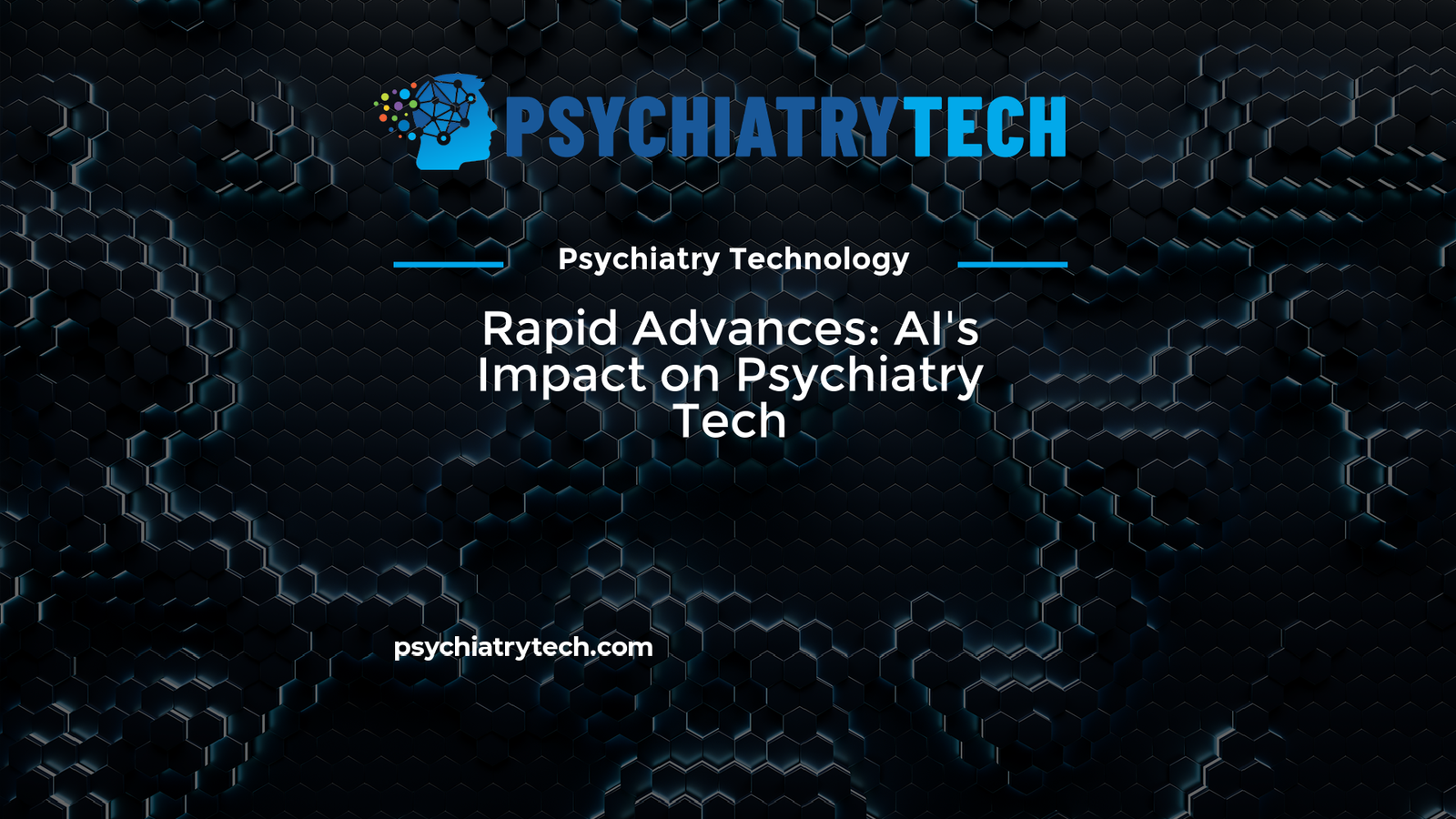Rapid Advances: AI’s Impact on Psychiatry Tech
AI, or artificial intelligence, is no longer a concept reserved for science fiction movies and books. It has now become an integral part of daily life, and it’s changing the field of psychiatry in exciting ways. From diagnosis to treatment, AI is helping clinicians provide better care for their patients. In this post, we’ll explore some of the rapid advances that AI is bringing to psychiatry tech.

Discover The World's MOST COMPREHENSIVE Mental Health Assessment Platform
Efficiently assess your patients for 80+ possible conditions with a single dynamic, intuitive mental health assessment. As low as $12 per patient per year.
Diagnosis and Assessment
One of the areas where AI is making significant strides is in the diagnosis and assessment of mental health disorders. Traditionally, psychiatric assessments have relied on subjective observations made by clinicians. However, AI algorithms are being developed that can offer objective and quantitative data that can complement these assessments.
One example is the use of machine learning algorithms to analyze speech patterns and vocal features in patients with depression. These algorithms use natural language processing to detect patterns in speech and detect changes that might indicate the onset of depression.
Similarly, researchers are using AI to analyze EEG signals in patients with schizophrenia. AI algorithms can detect abnormalities in these signals that could indicate the presence of the disease. These signals can also help clinicians predict the likelihood of relapse in patients.
Treatment
AI is also being used to improve the effectiveness of treatments for mental health disorders. One example is the use of chatbots to provide cognitive behavioral therapy (CBT) to patients. CBT is a type of talk therapy that has been shown to be effective in treating conditions such as anxiety and depression.
Chatbots are computer programs that simulate conversation with users. They can provide patients with CBT techniques, ask them questions about their thoughts and feelings, and provide feedback and encouragement. These chatbots are available 24/7, unlike traditional therapy, which is limited by scheduling and availability.
Another example of AI being used in treatment is in the development of personalized treatment plans. AI algorithms can analyze a patient’s medical history, genetic information, and lifestyle factors to develop tailored treatment plans that are more effective than generalized approaches.
Challenges and Concerns
While AI is showing great promise in psychiatry tech, it is not without its challenges and concerns. One challenge is the need for proper regulation and oversight. AI algorithms are still in development, and there is a risk of false positives or incorrect diagnoses if adequate safeguards are not in place.
Another concern is the potential for AI to increase the gap in access to care between those who have access to advanced technology and those who do not. The cost of implementing AI in psychiatric care can be high, and without proper planning and policies, it is possible that only a select few will be able to benefit from it.
Conclusion
The rapid advances in AI technology have already made considerable changes in the field of psychiatry, and the possibilities for the future are endless. From diagnosis and assessment to treatment, AI is providing clinicians with new tools to improve patient care.
However, it is also essential to remain mindful of the challenges and concerns that come with these developments. Proper regulation and oversight are necessary to ensure that these innovations are safe and effective for patients.
What do you think of AI’s impact on psychiatry tech? Do you believe it will improve the standard of care for mental health disorders? Share your thoughts by sharing this post on social media and tagging Psychiatry Tech, and stay tuned for more updates on AI advancements in psychiatry tech.
Note: This blog post is for informational purposes only and is not intended to provide medical advice. Always consult with a qualified healthcare professional for diagnosis and treatment recommendations.

